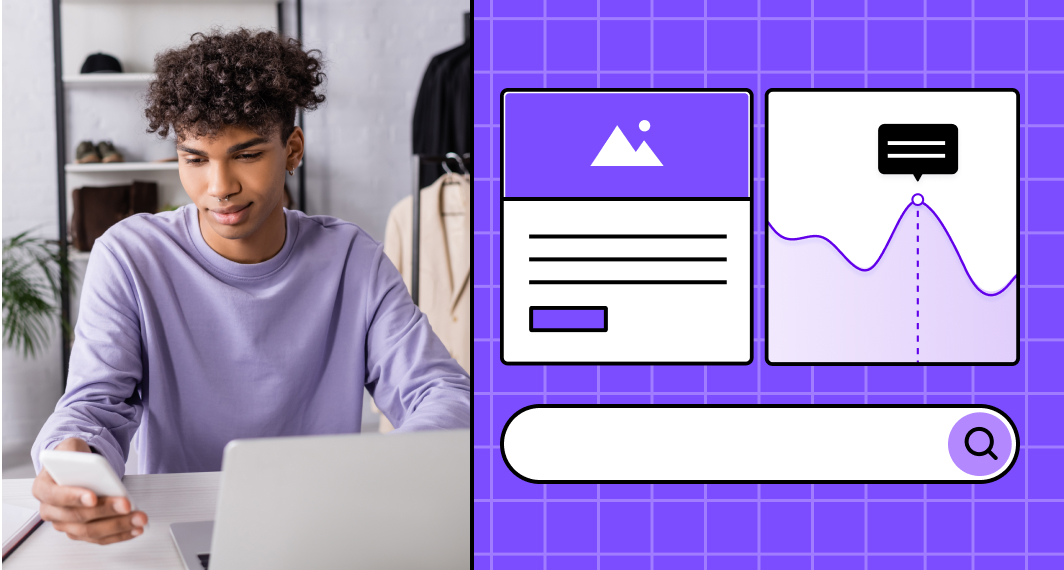What is a product catalogue?
A product catalogue is a digital shopping brochure that displays and categorises all the products in your online store. Product catalogues accompany product images with detailed product descriptions and prices to make it as easy as possible for customers to browse through your store and make purchasing decisions.
Amazon Marketplace is arguably the best example of a product catalogue, as it provides a host of information shoppers need to know with a single click.
Components of a product catalogue
If you’re running an online business or looking to build one, it’s important for you to understand that there are certain components a good product catalogue must have 👇
- Product information - ensure each item has a clear title and detailed product description, such as size, colour and technical specifications
- High-quality images - include multiple high-resolution images from different angles to showcase products effectively
- Pricing - display the prices where users can see them and consider highlighting any discounts or special offers
- Categories and subcategories- organise products into logical product categories for easy navigation
- Customer reviews and ratings - include user-generated reviews and ratings to build trust and provide social proof
- Search and filter options - provide search and filter functionalities to help customers find products quickly
- Product availability - specify shipping times and delivery options
- Related products - suggest complementary or similar items to encourage upselling and cross-selling
Only by incorporating these components into your product catalogue can you create an engaging shopping experience for your potential buyers.
Types of product catalogues
Depending on the type of business, you can choose from many types of digital product catalogues:
1 - Standard catalogue
These are the catalogues that contain basic information like the name of the product, product description, prices and images. You can create and manage standard catalogues pretty easily.
However, they lack in-depth information and don’t support complex product data.
2 - Rich catalogue
A rich catalogue is designed to provide your customers with detailed and visually appealing product information. It includes high-resolution images, comprehensive product descriptions and videos.
Using rich catalogues you can offer a comprehensive and immersive customer experience to your customers. However, these catalogues require more content creation and maintenance.
3 - Interactive product catalogue
Interactive product catalogues go beyond static images and descriptions. Using them, you can incorporate elements for interactive experiences such as product zoom features, interactive product tours and 360-degree views.
These catalogues engage your customers by allowing them to interact directly with the products, although you may need technical expertise to develop them.
4 - Personalised product catalogue
Personalised product catalogues are tailored to your customer’s preferences and behaviours. These catalogues use algorithms and customer data to recommend products that your customers are more likely to buy.
They also enhance user engagement and increase the likelihood of conversions by showing products relevant to them, but require advanced data analysis and personalisation tools to function.
Why does your business need a product catalogue?
Product catalogues are essential ecommerce website features. Let’s see what they help your business achieve 👇
1 - Organised product presentation
Product catalogues provide a structured and organised way to present your products to customers. They categorise items into easily navigable sections, making it simpler for shoppers to find what they're looking for. This helps improve the overall user experience on your website or app.
2 - Efficient product management
Catalogues enable you to efficiently manage your product listings, meaning you can update product details, pricing and availability in one central location. This reduces the risk of errors and ensures that customers always see accurate and up-to-date information.
3 - Enhanced user experience
A well-organised product catalogue enhances user experience by offering clear and concise product descriptions, high-quality product images and intuitive navigation. Customers can quickly assess product options and make informed purchase decisions.
4 - Improved search engine optimisation (SEO)
Search engines favour organised and structured content. Product catalogues with well-optimised titles, descriptions and metadata can boost your website's SEO rankings. This means more potential customers will discover your products through search engine results.
5 - Cross-selling and upselling opportunities
Catalogues facilitate cross-selling and upselling by suggesting related or complementary products. When customers view a product, you can showcase items that pair well with it, increasing the chances of them adding more to their cart and increasing their order value.
6 - Personalisation and recommendations
By analysing customer data and behaviour, you can personalise product recommendations within your catalogue. This keeps customers engaged by showing them products that align with their preferences, which can lead to higher conversion rates.
7 - Inventory management
With a catalogue, you can monitor and control your inventory more effectively. You can set stock levels, receive alerts for low inventory and avoid overselling, ensuring that you can fulfil customer orders without disruptions.
8 - Multi-channel Selling
If you sell on multiple platforms like apps, websites, marketplaces or social media platforms, a centralised online catalogue can be synchronised across all channels. This ensures that product information remains consistent and up-to-date regardless of where customers encounter your products.
Get a free app prototype now!
Bring your software to life in under 10 mins. Zero commitments.

 Facebook
Facebook X
X LinkedIn
LinkedIn YouTube
YouTube Instagram
Instagram RSS
RSS


